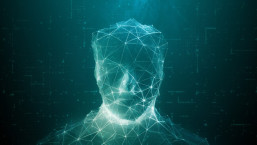The British government has released a document outlining the rules that British spy and law enforcement agencies have to follow in their hacking activities, reports The Guardian.
The document ("draft equipment interference code of practice") never uses the terms hacking, but "interference activities" - which is how it describes gaining stealthy access into computers, phones and other devices.
The report outlines what Engadget describes as dealing with "high-level issues such as proportional uses of hacks, data retention and the validity of warrants," but highlights it's a "rare acknowledgment that these digital intrusions even take place."
Details in the document are thin on the ground, and with good reason. The UK Home Office writes in the introduction that, "there are limits on what can be said in public about this work, but the public needs to know that these powers are used appropriately and are subject to stringent oversight."
The Guardian reports the concerns of privacy campaigners, who fear the draft code would give intelligence services the power to "sweep up content of a computer or smartphone, listen to their phonecalls, track their locations or even switch on the microphones or cameras on mobile phones."
Carly Nyst, legal director of Privacy International welcomed the additional transparency, but was quick to question the lack of scrutiny for the draft code: "GCHQ cannot legitimize their unlawful activities simply by publishing codes of conduct with no legislative force. In particular, the use by intelligence agencies of hacking – an incredibly invasive and intrusive form of surveillance – cannot be snuck in by the back door through the introduction of a code of conduct that has undergone neither parliamentary nor judicial scrutiny. It is surely no mistake that this code of conduct comes only days before GCHQ is due to argue the lawfulness of its hacking activities in court."
A Home Office spokesman defended the need for 'equipment interference', telling Mashable, "Terrorists, pedophiles and serious and organized criminals are increasingly sophisticated in their use of technology. It is vital that that law enforcement and security and intelligence agencies have the powers they need to identify, track and disrupt those who mean to do us harm."
Frederic Legrand - COMEO / Shutterstock.com




